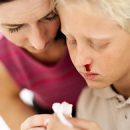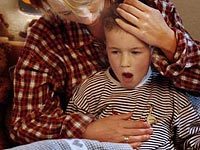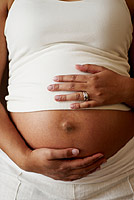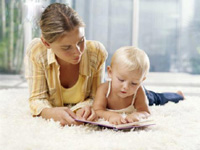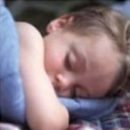Diarrhea, or liquid stool, in a child is not a disease, but a symptom that can accompany various diseases of the gastrointestinal tract. Spasms in the abdomen, high temperature, vomiting and dehydration are fraught with serious consequences. That is why diarrhea in a child requires special attention from parents and doctors.
Content
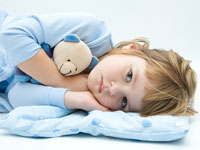 Attentive mom will immediately notice a change in the well-being of the baby and the character of the defecation. When evaluating the degree of damage to the gastrointestinal tract, specialists are focused on the frequency of the chair, its appearance, consistency and the general condition of the child.
Attentive mom will immediately notice a change in the well-being of the baby and the character of the defecation. When evaluating the degree of damage to the gastrointestinal tract, specialists are focused on the frequency of the chair, its appearance, consistency and the general condition of the child.
Diarrhea threatens fast dehydration, so the situation should be kept under special control. If diarrhea does not stop within a few hours, it should, not postpone, consult a doctor. Sometimes in a few hours of diarrhea, the baby can lose such a number of fluid that its condition will become critical, threatening not only health, but also of life.
In most cases, diarrhea has a child to treat at home, but sometimes, with a pronounced diarrhea, hospitalization becomes a prerequisite for further treatment.
Causes of diarch
The most common cause of diarrhea in a child is considered an infection, namely: dysentery, salmonellosis and viral diseases. In most cases, a sphere diarrhea is rotavirus, enterovirus, adenoviral and asteroviral infection. Usually the disease begins with vomiting, then abundant watery diarrheans appear, headaches, fever and dehydration. The rapid liquid chair can be caused by the amplification of intestinal peristaltics, highlighting a large number of inflammatory secretions or impaired water absorption in the thick intestine.
Ponos, which arise due to nutritional impairments, are usually associated with the development of food toxicoin intake. This disease is associated with eating obviously infected food. At the same time, a few hours after contact with infected food, a multiple vomiting and pain at the bottom of the abdomen appear. Pretty quickly join diarrhea, weakness and pallor of skin.
Diarrhea in a child may be associated with the inability of the digestive system to digest some products. Usually this diarrhea passes immediately after the cessation of provoking «agents». These may be some vegetables and fruits, especially in combination with dairy products and plenty of liquid.
Medical diarrhea in children, as well as in adults, may occur after long-term intake of antibiotics. Antibacterial drugs are able to destroy a healthy intestinal flora and provoke the development of dysbacteriosis.
Less often diarrhea and abdominal pain can be a sign of such acute surgical diseases, such as appendicitis, cholecystitis, pancreatitis, renal colic or intestinal obstruction.
If diarrhea began suddenly, it is necessary to remember and tell the doctor, what food, water and drinks over the past day ate a child, whether he was in a children's institution or was out of the house in the last night. It is also worth noting the relationship of diarrhea with certain products, drugs or food additives.
Treatment of diarrhea in children
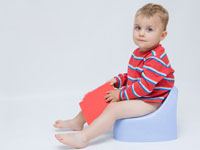 With a liquid chair, the child loses the main amount of water and salts. So that no dehydration occurred, the kid should often go and gradually, even if it refuses water. These may be small doses, literally a teaspoon of a weak saline or non-carbonated mineral water.
With a liquid chair, the child loses the main amount of water and salts. So that no dehydration occurred, the kid should often go and gradually, even if it refuses water. These may be small doses, literally a teaspoon of a weak saline or non-carbonated mineral water.
It is very important to compensate the lost with a liquid chair and vomit. Child is not recommended to give ordinary boiled water. It has been proven that the reception of liquid without salts is able to not refund, but to aggravate water deficiency in the body. In this time, it is impossible to give fruit juices, tea, sweet carbonated drinks, milk, chicken broth — These products only enhance dehydration. Insist on meals and feed the child through strength.
To absorb the toxins contained in the intestine, the kid can be given adsorbents: «Smekt», «Polyface», «Enterodez», «Enterosgel». Antibacterial drugs in diarrhea are prescribed strictly according to the results of bacteriological research of feces and only by appointment of a doctor.
Against the background of treatment, it is necessary to closely monitor the change in the number and consistency of the feces. The presence in the feces of blood, vitreous mucus, green or bright yellow inclusions requires immediate appeal to the infectious doctor. The slightest suspicion of degradation of well-being, high body temperature, indomitable vomiting, very frequent (up to 15–20 times a day) Liquid stools should bring the child and his parents to receive a specialist.
Parents need to know that self-treatment can only aggravate the position of the child, and the drugs in diarrhea should be carried out exclusively. You should refrain from the appointment of traditional folk drugs, this approach is incorrect and even dangerous. Parents must ensure the adequate amount of water and salt into the body — It will help faster to get rid of infection.
Most often, diseases causing diarrhea and vomiting in children pass on their own in a few days. Usually, the recovery is indicated by improving overall well-being, appetite appetas, as well as termination of diarrhea, spastic pain and vomiting.


